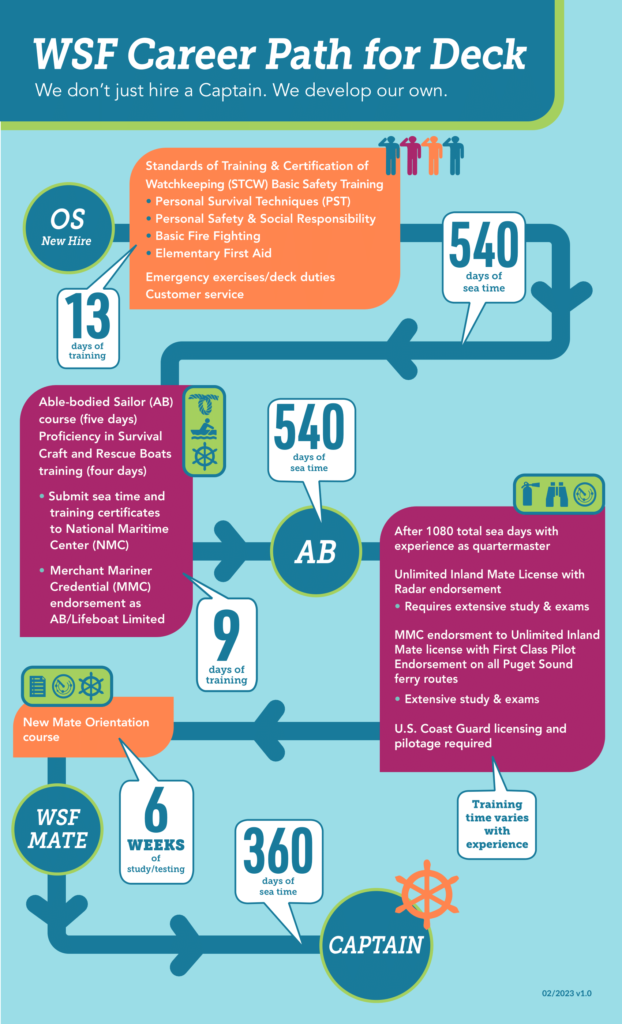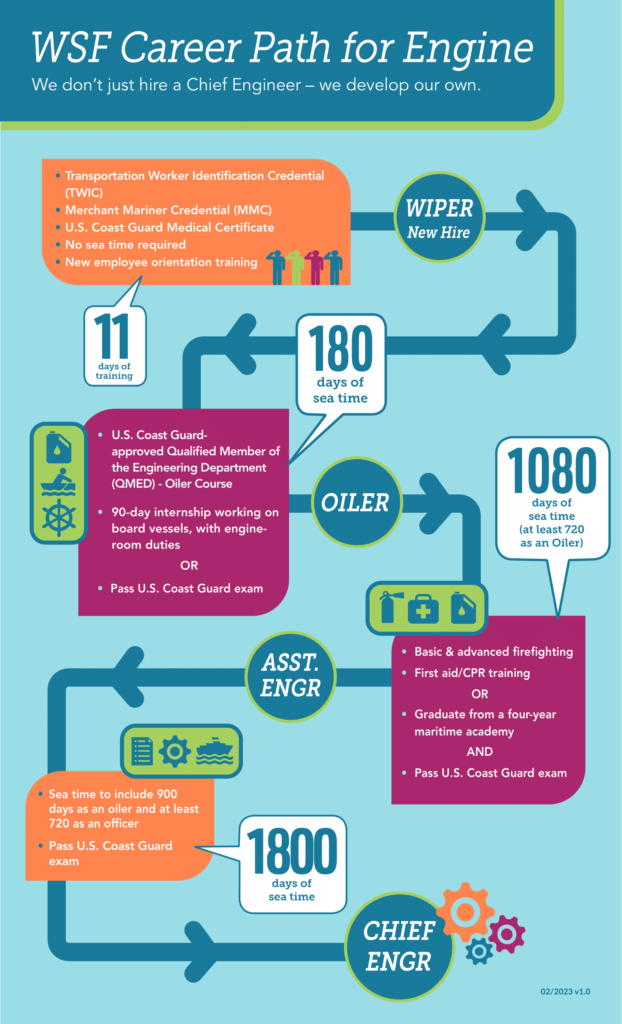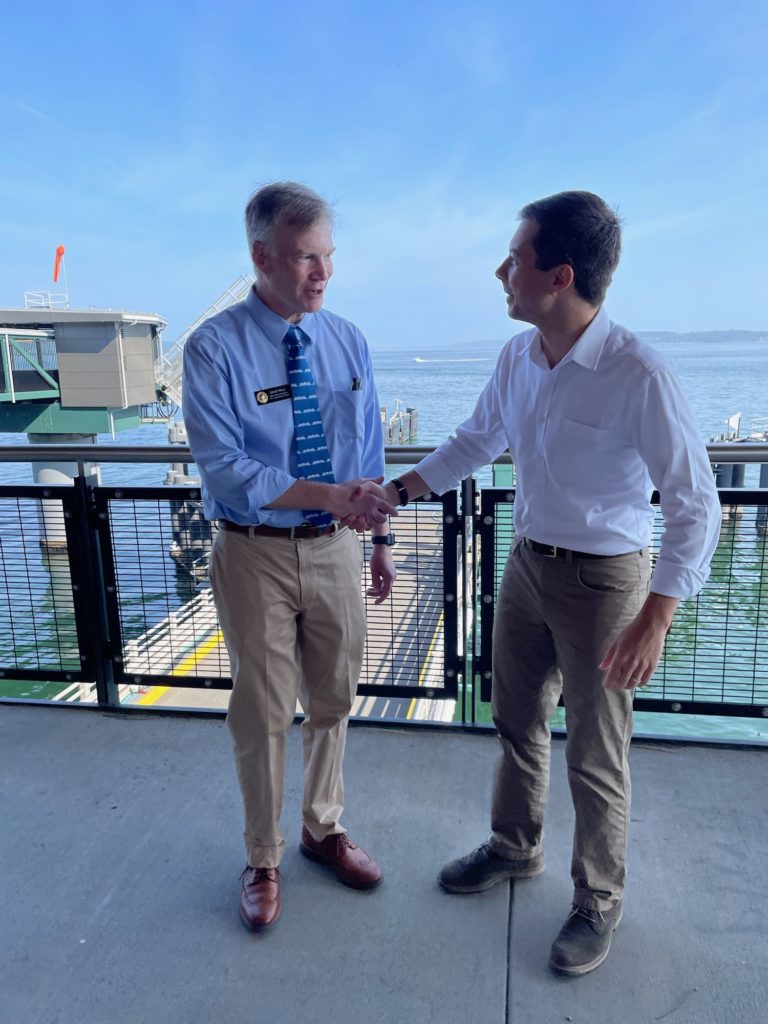Dear neighbors,
It’s no secret that nearly all professions and industries have faced workforce shortages over the last 3 years. This is especially true for Washington State Ferries, where jobs have specialized training and licensing requirements. Yet they pay quite well and have great benefits.
Here’s one real-life example of a ferry job that’s currently open: Vessel Project Engineer, which pays between $93,756 and $126,138 a year.
I’ve worked across the aisle to help keep our ferries running, and I’m happy to report that the new state budgets include funding for innovative programs to help address the workforce shortage for our ferries. That means we have the opportunity to do two good things at the same time: improve our ferry service while giving local residents great careers that pay well.
WSF is unique because you can start off as an entry-level employee—but work your way up to become a captain. This means that part of the solution is funding for new programs to help unlicensed ferry employees to get the credentials they need for more senior positions with better pay. I’m proud to have supported the work to both hire new ferry employees and make it easier for existing employees to work their way up the ranks.
Here’s the career path from deck hand to captain. New hires only need a few weeks of training to become deck hands—and start a path that can eventually lead to becoming a captain.
And here’s the career path for workers who keep the ferries running. Again, new employees only need a few weeks of training to start a path to living-wage jobs in the engine room.
I know how much we depend on ferries here in the 10th District for work, healthcare, and education. Check out the WA State Ferries website to learn more about the great jobs in the ferry system—and share with friends and neighbors that would be a good fit for serving our community with the WA State Ferries.
The improvements in the new state budget will do a lot to help. But I know there’s more work to be done, and as one of the founding members of the bipartisan Ferry Caucus, I’ll keep fighting for more improvements to the ferries that connect us all.
P.S. It was an honor to meet U.S. Transportation Secretary Pete Buttigieg last week and discuss the importance of electrifying the ferry system. I’m pleased that the Bipartisan Infrastructure Bill provides includes a $4.9 million federal grant to fund a ferry charging station in Clinton.




